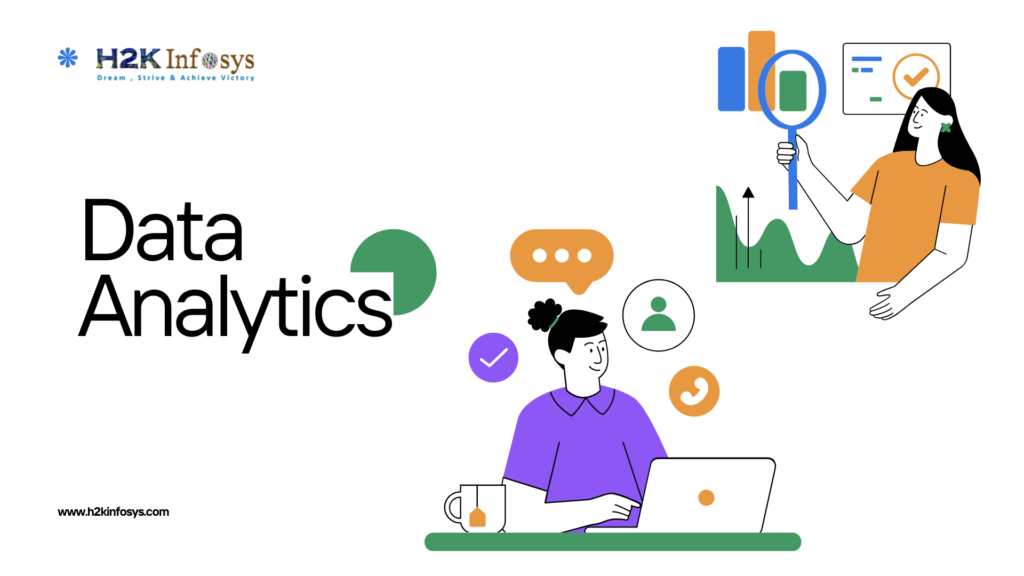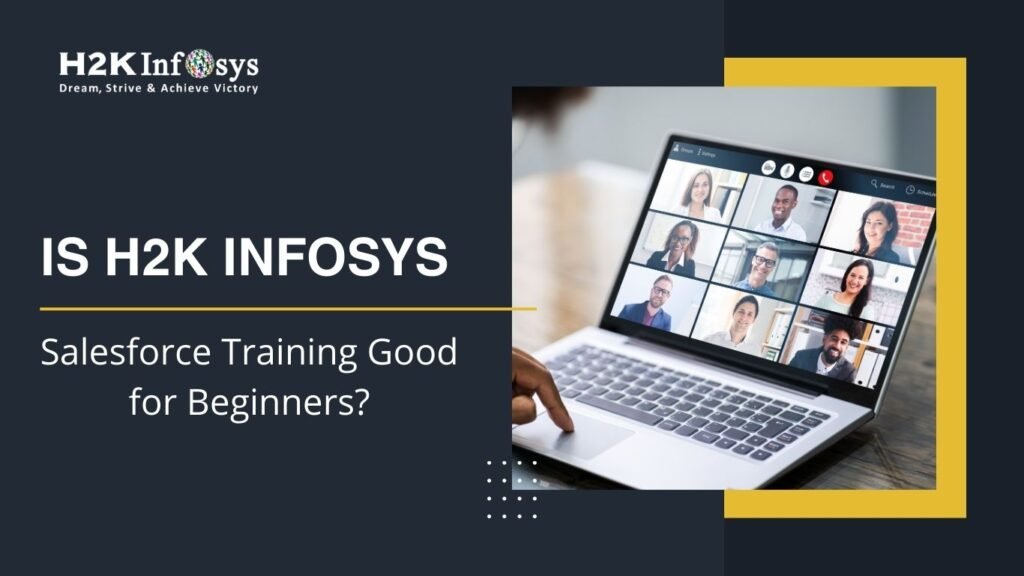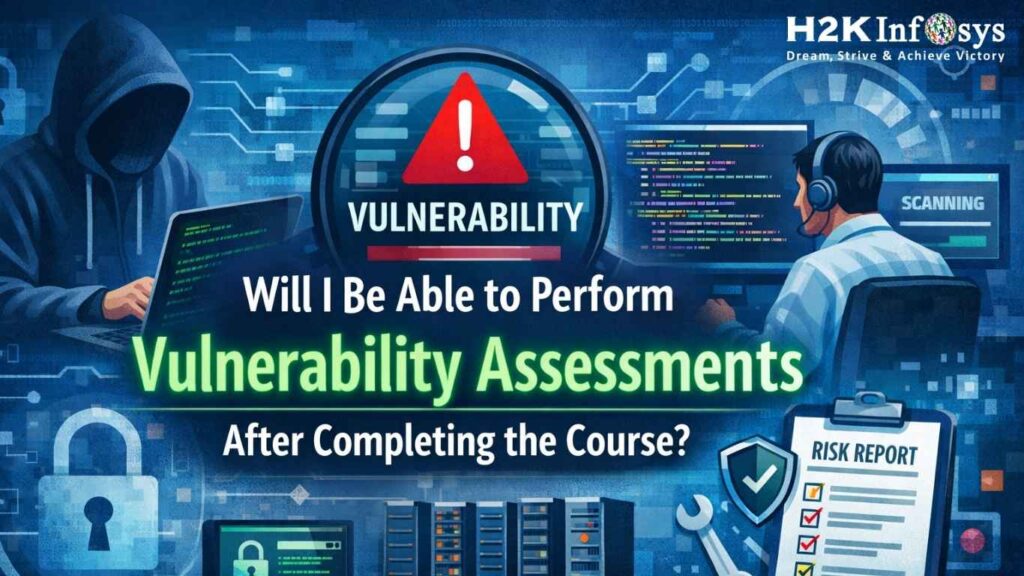In the fast-changing world of software development, DevSecOps Tools are revolutionizing how organizations build, test, and deploy applications. As security shifts left and automation becomes the norm, mastering the right tools can transform your career. Whether you’re pursuing an AWS DevSecOps Certification, enrolling in the Best DevOps course online, or starting with an Azure DevSecOps Course, understanding the ecosystem of tools is essential.
This comprehensive guide from H2K Infosys explores the top DevSecOps Tools that every engineer, developer, and IT professional should learn to stay relevant in 2025 and 2026.
1. Introduction: The Rise of DevSecOps Tools
Traditional DevOps focused on speed and collaboration. However, the growing frequency of cyber threats and vulnerabilities led to a fundamental shift security is now an integral part of the DevOps lifecycle. DevSecOps Tools automate and integrate security checks throughout continuous integration and delivery (CI/CD) pipelines.
According to Gartner, by 2026, over 70% of enterprises will adopt DevSecOps practices to ensure faster and more secure delivery. That’s why understanding DevSecOps Tools like Jenkins, GitHub Advanced Security, and Snyk is becoming a core skill for cloud engineers.
Key benefits of mastering DevSecOps Tools:
- Early vulnerability detection in CI/CD pipelines.
- Automated compliance and security checks.
- Improved collaboration between development, security, and operations.
- Seamless integration with AWS, Azure, and GCP environments.
2. Why You Must Learn DevSecOps Tools in 2025 & 2026
Learning DevSecOps Tools gives professionals a competitive advantage. As organizations migrate to cloud-native architectures, they demand engineers who can code securely, automate deployments, and manage compliance simultaneously.
Industry insights:
- LinkedIn listed DevSecOps Engineer among the top 10 most in-demand roles for 2025.
- The average salary for certified professionals with DevOps AWS Certification ranges between $120,000 to $150,000 per year in the U.S.
- Major firms like Amazon, Microsoft, and Netflix are adopting tools like Aqua Security, Prisma Cloud, and HashiCorp Vault for integrated security automation.
If you’re pursuing a DevSecOps Course Online or looking for the best DevOps course, learning these tools will future-proof your career.
3. Categories of DevSecOps Tools
To effectively implement DevSecOps, it’s important to understand that these tools fall into several categories:
| Category | Purpose | Example Tools |
|---|---|---|
| CI/CD Security | Automate secure builds and deployments | Jenkins, GitLab CI/CD |
| Code Analysis | Detect vulnerabilities in codebases | SonarQube, Checkmarx |
| Secrets Management | Protect API keys and credentials | HashiCorp Vault, AWS Secrets Manager |
| Container Security | Safeguard Docker and Kubernetes environments | Aqua Security, Twistlock |
| Cloud Security | Manage security across cloud services | Prisma Cloud, AWS Security Hub |
| Compliance & Monitoring | Automate compliance and detect threats | Splunk, Snyk, Falco |
Each of these DevSecOps Tools addresses a crucial layer of software security, making them vital for modern development pipelines.
4. Top DevSecOps Tools to Learn in 2025 & 2026
4.1 Jenkins: The Backbone of CI/CD Security
Jenkins remains one of the most popular DevSecOps Tools for automating continuous integration and deployment. With hundreds of security plugins, you can integrate tools like Snyk and OWASP Dependency-Check directly into pipelines.
Use Case Example:
Automating build verification for vulnerabilities before production deployment.
Why Learn Jenkins?
- Central to DevSecOps pipelines.
- Integrates easily with AWS, Azure, and Kubernetes.
- Part of every best DevOps course online curriculum.
4.2 GitHub Advanced Security
GitHub Advanced Security helps developers secure repositories using built-in vulnerability scanning, secret detection, and dependency analysis.
Core Features:
- Secret scanning to prevent credential leaks.
- Dependency review with auto alerts.
- CodeQL analysis for detecting logic flaws.
Integration Tip:
Combine GitHub Advanced Security with your Azure DevSecOps Course for real-world CI/CD experience.
4.3 Snyk: Developer-First Security
Snyk focuses on making security accessible to developers. It integrates with GitHub, Docker, and Kubernetes, automatically identifying vulnerabilities in open-source libraries and container images.
Why It Matters:
- Ideal for those pursuing AWS DevSecOps Certification.
- Offers real-time feedback and patch suggestions.
- Part of several DevSecOps Courses Online.
Key Benefit:
Empowers developers to fix vulnerabilities without depending solely on the security team.
4.4 HashiCorp Vault: Secrets and Key Management
When dealing with sensitive credentials, HashiCorp Vault is one of the most powerful DevSecOps Tools available.
Top Features:
- Dynamic secrets management.
- Encryption-as-a-service.
- Access control policies with audit logging.
Real-World Application:
Used by major enterprises to safeguard AWS access tokens, API keys, and database credentials.
Career Insight:
Hands-on Vault experience enhances employability in roles requiring DevOps AWS Certification.
4.5 SonarQube: Code Quality and Security
SonarQube ensures code quality and security by scanning codebases for bugs, vulnerabilities, and code smells.
Advantages:
- Supports multiple programming languages.
- Integrates seamlessly into CI/CD workflows.
- Identifies security flaws early in development.
Learning SonarQube gives you practical exposure to one of the most widely adopted DevSecOps Tools for static code analysis.
4.6 Aqua Security: Container Security Leader
As containerization dominates DevOps, securing containers becomes essential. Aqua Security is a leading container security platform that protects Docker and Kubernetes environments.
Key Features:
- Runtime protection and image scanning.
- Compliance enforcement for containers.
- Integrates with Jenkins, GitLab, and AWS EKS.
This makes Aqua Security a must-learn tool in any DevSecOps Course Online.
4.7 Prisma Cloud: Cloud-Native Security Platform
Developed by Palo Alto Networks, Prisma Cloud offers comprehensive visibility and protection across cloud infrastructures.
Why It’s Popular:
- Supports AWS, Azure, and GCP.
- Provides runtime defense and compliance monitoring.
- Offers vulnerability management and threat detection.
Professionals with Azure DevSecOps Course backgrounds find Prisma Cloud integration highly valuable in enterprise environments.
4.8 OWASP Dependency-Check
This open-source tool scans project dependencies for publicly known vulnerabilities using the National Vulnerability Database (NVD).
Why Learn It?
- Simple yet powerful tool for software composition analysis (SCA).
- Commonly used in AWS DevSecOps Certification training.
- Lightweight integration in CI/CD pipelines.
4.9 GitLab CI/CD with Security Scanning
GitLab goes beyond CI/CD it includes integrated security scanning features like SAST, DAST, and container scanning.
Core Benefits:
- Unified DevSecOps platform.
- Simplifies vulnerability management.
- Excellent for collaborative cloud projects.
If you’re taking a DevSecOps Course, GitLab CI/CD mastery is essential.
4.10 Falco: Runtime Security for Containers
Falco, developed by Sysdig, monitors runtime container activity to detect unexpected behavior or intrusions.
Key Highlights:
- Real-time intrusion detection.
- Rule-based alerting system.
- Compatible with Kubernetes and Docker.
This makes Falco one of the most advanced open-source DevSecOps Tools for runtime protection.
5. Bonus DevSecOps Tools Worth Learning
Beyond the top 10, here are additional DevSecOps Tools worth mastering in 2025 and 2026:
- Trivy: Vulnerability scanner for containers, IaC, and file systems.
- Anchore: Automated image scanning for container compliance.
- Chef InSpec: Automates infrastructure security testing.
- AWS Security Hub: Unified view of AWS security findings.
- Terraform with Sentinel: Policy-as-code for secure IaC deployments.
Each of these enhances your skill set in DevOps AWS Certification and multi-cloud environments.
6. Integrating DevSecOps Tools into Real-World Workflows
Learning tools isn’t enough you must know how to integrate them effectively.
Step-by-Step Implementation:
- Code Commit: Developers push code to GitHub or GitLab.
- Automated Scanning: Tools like SonarQube and Snyk detect vulnerabilities.
- Secrets Management: HashiCorp Vault secures credentials.
- Container Build: Jenkins builds Docker images.
- Container Scanning: Aqua Security and Trivy validate image integrity.
- Deployment: Tools like Terraform deploy to AWS or Azure.
- Monitoring: Falco and Prisma Cloud monitor runtime threats.
This continuous loop ensures end-to-end protection and compliance across development pipelines.
7. Real-World Case Studies: DevSecOps in Action
Case Study 1: Netflix
Netflix adopted a robust DevSecOps Toolchain using Spinnaker, Vault, and Snyk to automate security testing in CI/CD pipelines. This reduced vulnerability response time by 80%.
Case Study 2: Capital One
Capital One leveraged AWS-native DevSecOps Tools like AWS Security Hub and Inspector for compliance automation, ensuring secure cloud infrastructure at scale.
Case Study 3: Microsoft Azure
Microsoft integrates DevSecOps Tools into Azure DevOps for continuous compliance checks across its massive global data centers an ideal model for Azure DevSecOps Course learners.
8. Key Challenges in Implementing DevSecOps Tools
While these tools bring immense value, organizations face common challenges such as:
- Integration complexity across multi-cloud setups.
- Skill gaps in security automation.
- Over-reliance on manual approvals.
- Managing tool sprawl across teams.
Solution:
Taking the best DevOps course online or enrolling in a guided DevSecOps Course at H2K Infosys helps professionals overcome these barriers through structured, hands-on learning.
9. How H2K Infosys Helps You Master DevSecOps Tools
H2K Infosys offers specialized online programs focusing on DevSecOps Courses, Azure DevSecOps Course, and DevOps AWS Certification paths.
Course highlights include:
- Real-world projects using Jenkins, Snyk, and Vault.
- Step-by-step guidance on CI/CD pipeline security.
- Mock interviews and resume-building sessions.
- Cloud labs with AWS and Azure integration.
- Expert instructors with industry experience.
By mastering DevSecOps Tools, students not only enhance their technical skills but also boost their employability across industries such as fintech, healthcare, and e-commerce.
10. Future Trends in DevSecOps Tools (2025–2026)
As we move forward, DevSecOps Tools are evolving to incorporate:
- AI-driven Security: Automated vulnerability prediction and remediation.
- Shift-Left Observability: Real-time threat detection during code commits.
- Zero-Trust Automation: End-to-end identity validation across containers.
- Unified Dashboards: Centralized monitoring across cloud and hybrid setups.
Learning and adapting to these innovations will be key for professionals aiming for senior DevSecOps roles.
11. Key Takeaways
- DevSecOps Tools are essential for building secure CI/CD pipelines.
- Top tools include Jenkins, GitHub Advanced Security, Snyk, HashiCorp Vault, and Prisma Cloud.
- Learning through a DevSecOps Course Online ensures hands-on exposure.
- Earning an AWS DevSecOps Certification or completing the Azure DevSecOps Course enhances career prospects.
- H2K Infosys provides the best DevOps course online to equip learners with practical skills.
12. Conclusion: Secure Your Future with DevSecOps Tools
The demand for professionals skilled in DevSecOps Tools is skyrocketing. As companies emphasize automation, compliance, and cloud security, mastering these technologies will set you apart in the global IT market.
Ready to advance your career?
Enroll in H2K Infosys’ DevSecOps Course Online today and gain hands-on experience with industry-leading DevSecOps Tools to become a certified, job-ready expert.

























